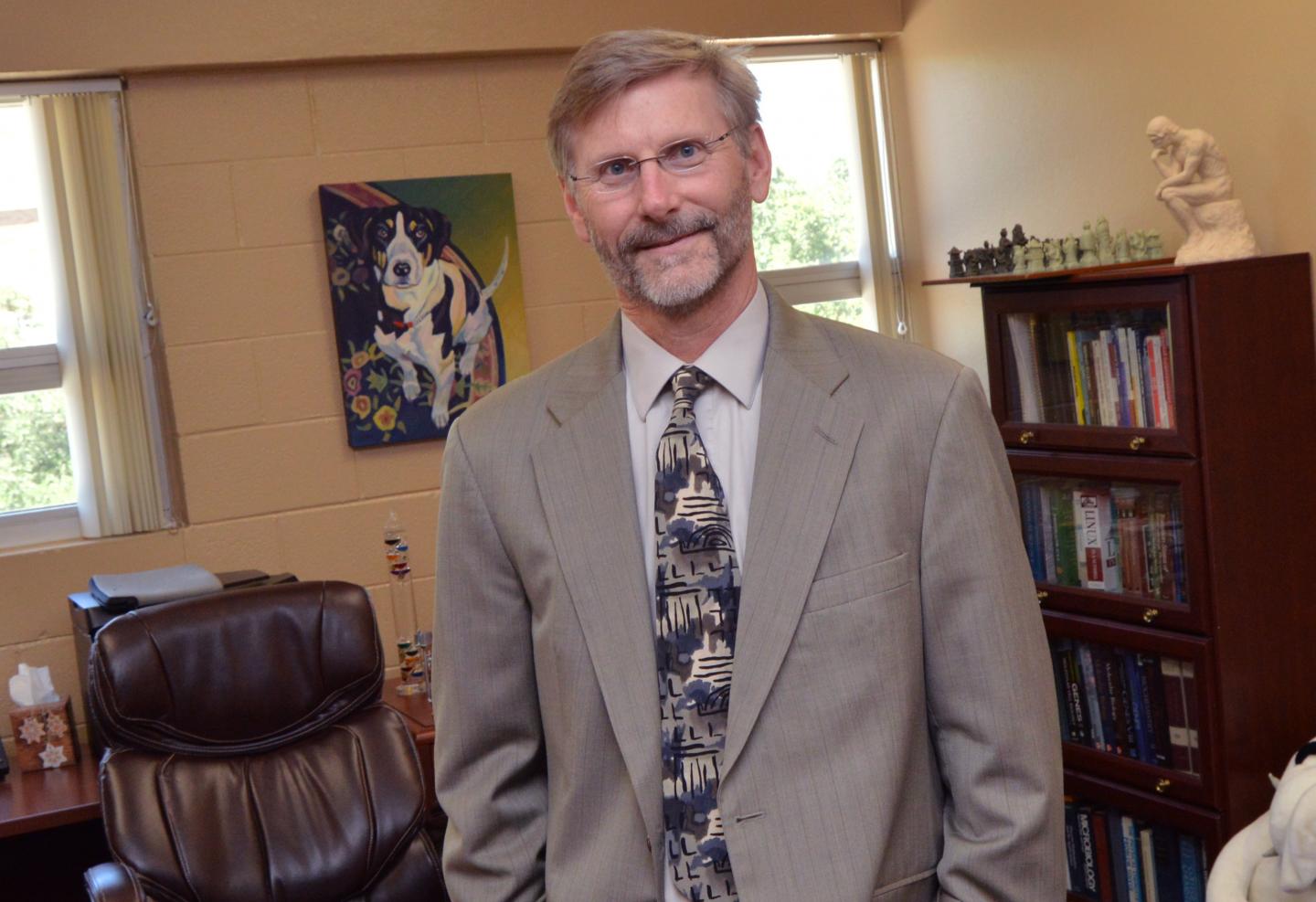New understanding of cellular life cycle could inform transformative cancer treatment

Credit: The University of Texas at Arlington
A scientist’s research at The University of Texas at Arlington could lead to more effective, targeted treatment of cancer cells–adding to the University’s diverse array of projects focused on advancing health and the human condition.
Clay Clark, professor and chair of the UTA Department of Biology, has received a four-year, $1.17 million grant from the National Institutes of Health to investigate the regulation of proteins responsible for programmed cell death.
A number of cells lose the ability to regulate these proteins, called caspases, and the normal cell death program. Too much cell death can cause problems with inflammation and various diseases such as arthritis. Too little cell death can lead to complications like cancer.
“We want to understand how cell death is regulated by these proteins in normal, healthy cells–something we have little knowledge of to date,” Clark said. “If we don’t understand how they’re regulated under normal conditions, then we don’t know how inflammatory diseases or cancers alter that regulation.”
An understanding of how cell death is regulated could lead to drugs that target cancers where there is too little cell death, according to Clark.
“We want to know how to activate these cell death proteins specifically in cancer cells, but not in other tissues or in the joints where it could cause inflammation,” Clark said. “We don’t have great targeting mechanisms for cancer treatment, so we’d like to use our discoveries to inform the selective targeting–the turning on or off–of these enzymes in cancer cells.”
Clark is part of a community of faculty in diverse disciplines at UTA conducting research supporting improved outcomes across the complete spectrum of the diagnosis and treatment of cancer patients.
“UTA’s reputation as a nationally recognized, Research 1 institution is built on the inquisitive, impactful research conducted by faculty members like Dr. Clark,” UTA Vice President for Research Duane Dimos said. “As a part of our focus on health research, UTA is becoming a significant cancer research center.”
To explore the regulation of caspases, Clark will trace their evolutionary trajectories, or mutations, back over 700 million years to determine how the modern protein came to exist and function. Caspases evolved from a common ancestor into two distinct subfamilies.
Though little is known about the regulation of these proteins, scientist have learned that they are regulated differently in different organisms.
“If humans have a certain sequence in their caspase proteins, and fish have a similar but slightly different sequence, then we can reconstruct the common ancestor through the use of various computational methods,” Clark said. “We actually resurrect these extinct proteins so we can track how cell death regulations have changed over time to gain insight into the processes.”
“Dr. Clark’s research has the potential to transform how we understand and potentially treat a variety of health issues, such as cancer,” College of Science Dean Morteza Khaledi said. “I congratulate him on the significant funding he has received from the National Institutes of Health to pursue this important set of research questions.”
Clark has dedicated more than 20 years to studying the structure and function of cellular proteins. With his background in both biology and biochemistry, he will blend the two disciplines in the current NIH-funded study.
“As a biochemist, I approach this with attention to how these regulating proteins work. With my background in biology, I’m interested in how they work in cells, not just test tubes,” Clark said. “That’s been a theme throughout my career. I look at protein structures and how they’ve changed over time, how they differ in various cell types and how we might be able to take advantage of that to design various drug compounds that will specifically target these proteins.”
###
Media Contact
Dana Jennings
[email protected]
Original Source
https:/




